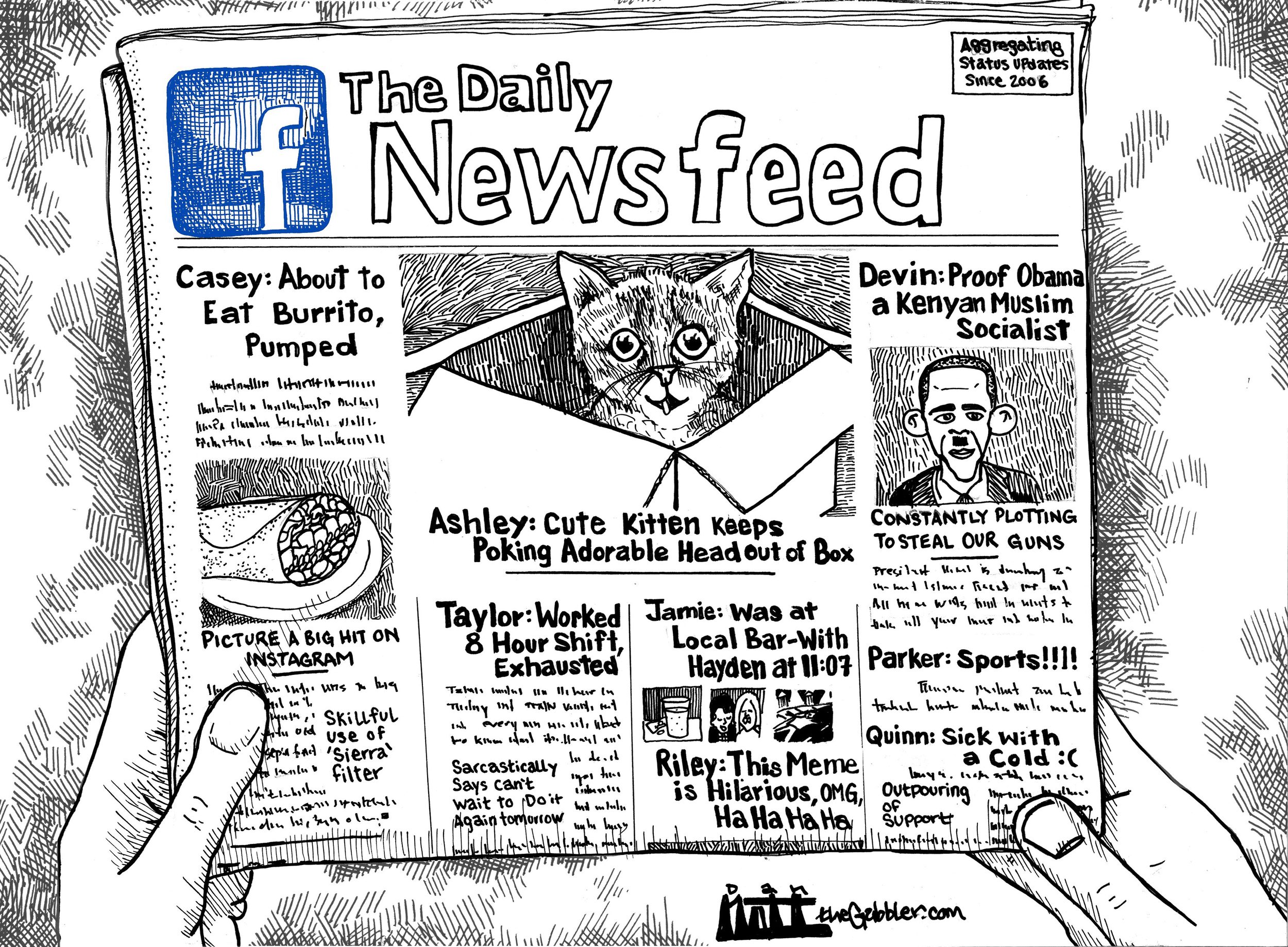The above illustration is by the very talented [seriously!] Dan Nott. Check out the rest of his work at dannott.com.
Over the last 12 months, there has been no dearth of news in India. From news of success in bilateral relations during Prime Minister Narendra Modi's travels abroad, to news of interesting startup ventures getting funded, one would assume newspaper editors would have their hands full.
And I am sure they do. But here's the interesting part: I, and I am guessing most people in my generation, rarely read news in the newspaper anymore.
Not for lack of such content in the newspapers I get every morning [which I usually end up reading later in the evening, more on this in just a moment]. It just so happens that between Twitter [+] a curated Feedly RSS feed [+] Whatsapp conversations, I notice that I am, for the most part, decently informed of developments across a variety of areas even before I pick up the newspaper.
I am guessing my behaviour is not unique and is part of a bigger wave of digital channels such as above obviating the need for old-school newspaper subscriptions. The US newspaper industry is already in the throes of pain with revenues declining by more than 30% over the past decade. Some traditional newspapers such as NYT and Washington Post have set up digital copies with pay-walls but these models [of getting consumers to pay for news online] are already facing growth pangs.
Others like Blendle, a pay-per-article model, have tried to drastically lower the cost of consuming news moving away from 'subscription pay' to 'transactional pay'.
Back in India, media analysts are of the opinion the newspaper industry is going to see some good times. Especially regional language newspapers that are expected to clock double-digit growths as millions of Indians become literate. However, here's the theory: the moment a person is literate, he/she is going to go buy a smartphone to use Facebook and Whatsapp and soon enough, Newshunt. India's largest newspaper Dainik Bhaskar sells 3.6Mn copies every day. Newshunt has 90Mn installs with more than 75Mn pages of news consumed every day.
While I find the Blendle model interesting [read the post by their CEO, nice stuff] I have my doubts on whether news, in any model, is going to make money the way it has so far. And I am coming from a place which believes newspapers have another content model that can work IMHO.
Every evening, I spend ~ 20 minutes going through the day's newspaper. Typically, by that time, I more or less know the 'news' but here's what I spend almost all my time reading the newspaper - trends and opinions.
Trend stories are the proverbial 'let's take a step back' moments for me in looking at broad changes taking place. And good trend stories in newspapers have me hooked! I was told a long time ago that in analytics, first there is data, then insight, then knowledge [hey, don't shoot me if this is incorrect, I was never good at analytics!]. News is data. Discrete byte-sized information that's supposed to get the point across succinctly. Trend stories then to me, are the insights. The deeper patterns behind the data. And in my opinion, newspaper journalists in a geography [esp. India] do a far better job of putting together a local trend than most of the citizen journalists in that place.
Opinion pieces are even more interesting. Opinions, to me, are the 'knowledge' gleaned from insights i.e., a stab at predicting the future based on what we know about what's causing the present. And good opinions pieces in newspapers from people who know their stuff are not just informative but incredibly educative. I have learnt more about the implications of National Green Tribunal's diesel vehicle regulation to BJP's evolving minorities stance from that 20 minutes in the evening than from any other source.
And therein, in my opinion, lies a newspaper's core asset - high quality research combined with articulate points of view. And in a world where there is no dearth of content, I'd like to see newspapers continue to provide knowledge. Something, I will be willing to continue to pay for.
